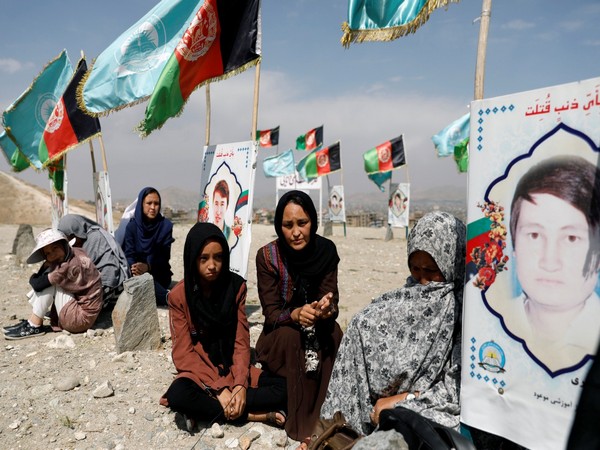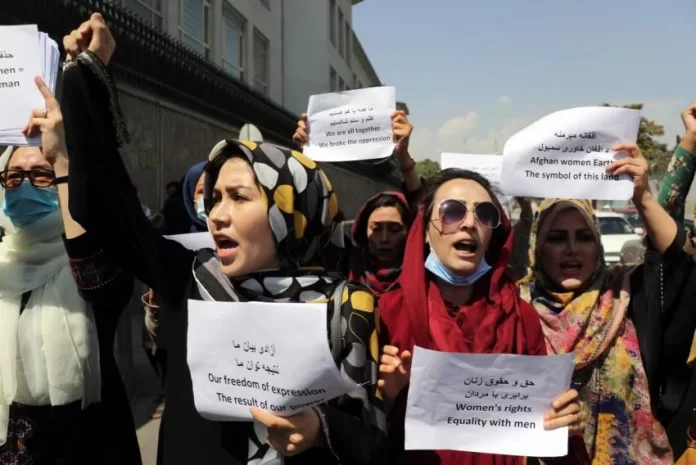Daniyal Wali
The Taliban takeover in Afghanistan post US withdrawal resulted in drastic changes in political scenarios and human rights violations. The actors involved in the process carried out multiple violent acts that were against basic human rights and posed a major danger to the free and fair life of the citizens.
The year 2021 brought a dramatic shift in the politics of Afghanistan. On 14 April, the United States President Joe Biden announced to withdraw the remaining US troops from Afghan soil by mid-September. A subsequent Taliban military attacked the major provinces and took control of Kabul on 15 August. It resulted in the collapse of the government and President Ghani fled the country. An interim government was set up by the Taliban in early September. This dramatic shift in the political environment also challenged the progress of the last two decades to promote human rights in the country. After taking the seat, the Taliban signaled to the world that they would respect human rights, but the ground reality has been the opposite to this. Hence, the human rights situation in Afghanistan after the withdrawal of the US has been absolutely threatening and alarming.
According to reports from the United Nations in December, almost 23 million people in the country faced severe food insecurity and hunger. In addition, more than 3 million children were at risk of death due to severe malnutrition. The already deteriorating situation in the country was further inflamed by the conflict, drought, COIVD-19, and economic crisis multiplied by the suspension of aid from foreign governments and organizations. Soon after taking the office, the Taliban took a harsh stance against the rights of women and girls, they intimidated the human rights defenders and challenged the basic freedoms such as expression and education. The situation was further deteriorated by the political turmoil and insecurity in most parts of the country. The actors involved in the process carried out multiple violent acts that were against basic human rights and posed a major danger to the free and fair life of the citizens.
The unlawful killings and indiscriminate killings in the country increased at a rapid pace after the withdrawal of the US forces. Government forces loyal to President Ghani and other non-state actors carried out multiple indiscriminate attacks such as using explosive devices and airstrikes. The results were evident in the form of thousands of civilians being injured and many dying. As per the assistance mission carried out by the UN, a massive increase in civilian casualties was recorded in the first part of the year and it increased sharply as the forces began to withdraw. The parties to the conflict intentionally carried out attacks on civilian facilities such as hospitals, mosques, and other public places to inculcate fear among the people. On the other hand, the Taliban followed an aggressive rule to maintain their grip over the captured areas. They carried out killings of social activists, human rights defenders, health workers, and journalists. Religious minorities such as Shias, forces under the leadership of the former government, and security forces were priority targets for the Taliban. Moreover, evictions and forced displacement also turned out to be a major barrier to human rights in Afghanistan. The Taliban forcefully displaced minorities such as the Hazara families. Thousands of people were evicted from areas supporting the former President Ghani. From January to December 2021, approximately 682,031 people were displaced from their homes due to the fighting. These figures magnify the hardships faced by the native Afghans amid the political turmoil in the country.
When the Taliban took over the country, the already restricted environment turned more suffocating for women and girls. Despite claiming to respect women’s and girls’ rights, the Taliban created a gender-biased society. As soon as the new government was installed, women and girls lost some of their basic rights. Only four female government delegates were present in the final round of peace talks with no women from the Taliban’s side. The interim government proposed by the Taliban did not include any female members. Their stance took a rigid phase when they
disbanded the Ministry of Women Affairs and its provincial offices. Women working in professional environments such as judges, lawyers, and prosecutors were abruptly dismissed and substituted by their counterparts. In regard to education, the Taliban’s spokesman announced that a safe and secure environment was required before girls can join schools. However, even after months of their takeover, the situation for girls remained unclear. The schools in most of the provinces were closed for girls while cases of intimidation and harassment were regularly recorded. In the same way, sexual and gender-based violence against women increased at a rapid pace during the crisis period. Hence, the Afghan soil turned tougher and more constrained for girls and women after the Taliban installed their government.
Furthermore, the human rights defenders, members of the LGBTI community, and migrants found themselves in a much more choked environment than ever. The freedom of expression and assembly were forcefully denied through violent means. The Taliban severely curtailed press and media freedom. In addition, the already trembling health system of Afghanistan faced numerous harsh hindrances as foreign funds and aid halted. All these causes combined together to create a major challenge to human rights in the country as US forces fled the country.

To conclude, the people of Afghanistan faced a severe dilemma after the US forces left the country. After taking over the government, the Taliban showed positive gestures to respect human rights, but the ground realities are far from it. From indiscriminate attacks on civilian facilities to assaulting women and girls, the Taliban portrayed their stance toward human rights. Afghanistan has undoubtedly been one of the worst countries in terms of human rights and the political turmoil in the country further deteriorated the affairs. The country is still going through a bad period and it is the poor citizens of the land who suffer terribly.




